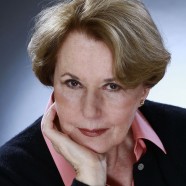
102 women stood in the dorm library, members of the class of 1961 who chose to attend their 55th reunion. It’s a self-select group, those that felt they had done well enough and looked good enough to attend, and who didn’t have personal or family issues to keep them away. June is the month when colleges across America welcome back their alumni, an exercise in nostalgia for the attendees and an unparalleled opportunity to fund-raise for the institutions. Wellesley remains one of the very few all-women colleges in the Ivy League, as most of its sister institutions began welcoming men starting in the 1970s.
Of the 503 original class members, 75 have passed away and 22 are unfindable. Some 380 graduated. The entering class was largely Caucasian WASP, with a sprinkling of Catholics, 10% Jews according to then-quotas in the Ivy League, 3 Asians, 2 African Americans, very few international students. If a girl was discovered to have lesbian leanings, she was expelled.
Today, eyeballing the on-campus population, Asians comprise a quarter, African Americans another quarter, a sprinkling of Muslims, and an LGBT chapter on campus. The college recently went through severe growing pains as it addressed the transgender issue, while vowing to remain a woman’s college. It concluded that if an applicant identified as female, she would be considered for admission. This means there will be a number of penises in the Wellesley Women’s rooms of the future, and some daunting decisions on the pairing of freshman roommates. As a side note, girls who are transitioning to and identify as male, despite gender of birth, will not be considered for admission. Those who are already enrolled will be allowed to matriculate and graduate. And, importantly, Wellesley welcomes its first African-American president, an impressive M.D. from Harvard (yes, female, as always).
And what of the women themselves? They became architects, artists, astronomers, community leaders, doctors, educators, engineers, entertainers, farmers, historians, IT professionals, investment bankers, lawyers, librarians, mathematicians, military personnel, nurses, physicists, politicians (the most famous, Hillary Clinton, was valedictorian of her class of 1968), psychologists, scientists, social workers, stay at home moms, volunteers and writers. They are concerned with and work to support issues such as the future of education, global warming, conservation, equality and of course women’s issues. They are mothers, daughters, partners, caregivers, and friends.
The yearbook stories run the gamut from the triumphant to the not-defeated. The individual economics are not discussed but intuited. One family donated $25 million to erect a new building. Some attended reunion thanks to a Student Aid donation that made travel and week-end fees a possibility.
The majority of women who entered college in 1957 married, a number of them more than once. A percentage have female partners. A significant group of women are alone, mainly through death of spouse or partner. Most have children and grandchildren. These women speak candidly of successes and tragedies. Resilience is a main theme throughout. Many share thoughts about their legacies, to their families and community at large:
Staying healthy is the biggest challenge. Grandchildren are the biggest reward, and gratitude is the foremost emotion.
I am loving retirement and the freedom to do what I like. Life has never been better.
One woman discovered that her beloved husband of many years had another wife and children in a distant state.
Being satisfied with what I have, vs. yearning for what I don’t, yields a modicum of tranquility.
One alum dictated her piece from a hospice bed and died just before reunion: she opined that most of her friends are anxious about what will give out first, the body, the mind, or the funds. She exhorted classmates to accept help gratefully and not fret about things beyond their control.
Each profile in the record book shows the young woman at graduation, in her most vibrant and hopeful incarnation. Most included pictures of themselves now, many with generations of family. Some pictures are simply of the Wellesley campus.
At the end of reunion, on June 5, 2016, women embraced and promised to see each other at their 60th in 2021.
Sally Haver retired in 2013 after a long career as a Senior Business Development Executive. Since retiring, she has found that there are many people who are working during their post-retirement years, and not necessarily because they have to work. Some retirees are interested in pursuing a lifetime dream, and others find tremendous fulfillment simply by undertaking a new challenge. Sally Haver is an editor and a frequent contributor to The Connector, covering the emerging new work force of retirees who are choosing to work for the sheer love of it.









